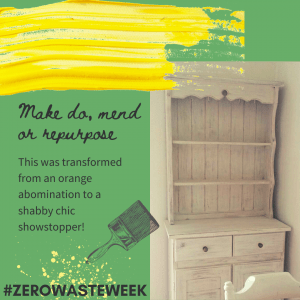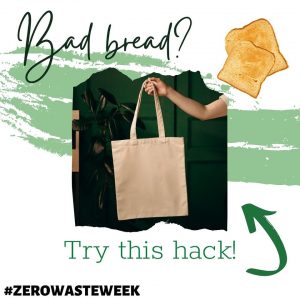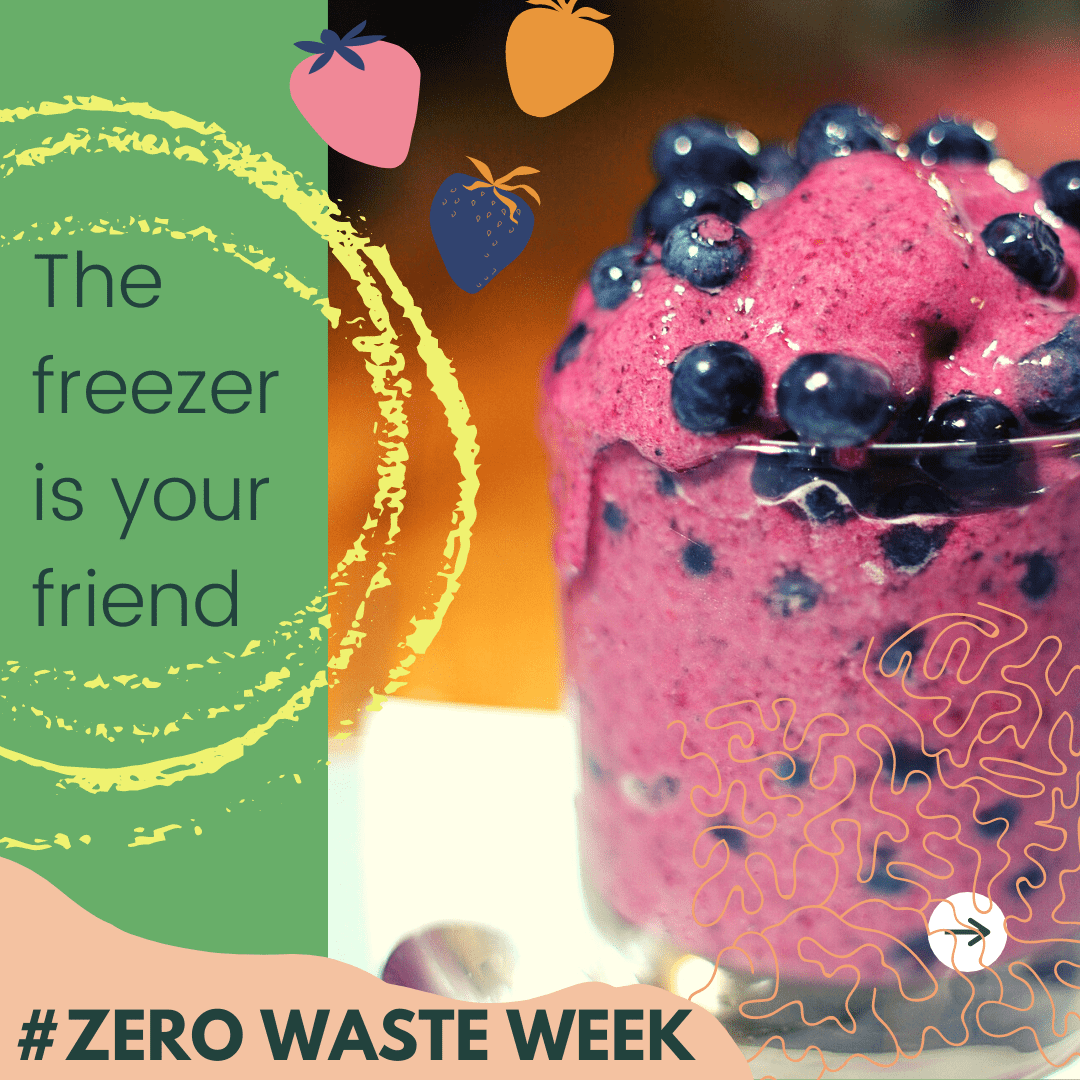
01 Oct 5 ways to waste less in 2020
Last month we marked Zero Waste Week 2020 at Ecopia Stockport by sharing some top tips on our social media pages.
If you didn’t spot all of our posts, save yourself the hassle of trawling back through our feeds – here’s a recap of our top tips for Zero Waste Week 2020.
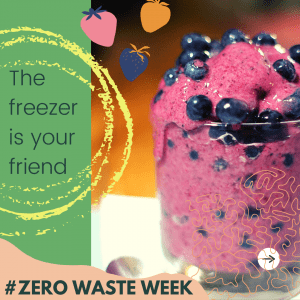 Freeze ripening food
Freeze ripening food
Imagine: the entire population of London struggling to afford to eat while we as a nation waste 4.5 million tonnes of food each year.
Well, guess what? Sadly, this is reality: 8.4 million people in the UK – equivalent to the population of London – are struggling to feed themselves. At the same time, we’re throwing away boatloads of food.
I find that things like bread and bananas are the first to go bad in our house, but when it comes to food that’s reached peak ripeness, the freezer is your friend.
Are you always having to bin half a loaf of bread? Freeze it instead. Bananas that have started to get spotty can be frozen and used in smoothies or banana bread. Soft berries can be frozen for crumbles and pies, and fresh herbs like rosemary, sage, thyme and oregano can be chopped and added to an ice cube tray with a little olive oil or butter.
In fact, there’s loads you can freeze in ice cube trays, including wine if you like to make boozy recipes, and pureed leftover garlic, ginger or chillies.
Check out the Love Food Hate Waste Community A-Z of Food Storage and you’ll find out that you can freeze most foods!
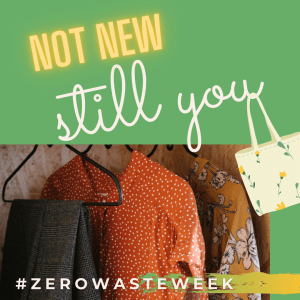
Choose second-hand to combine sustainability and style
With this rise in fast fashion comes the environmental impact – increased use of water, pollution and more waste to landfill – but there are alternatives to buying into our throwaway clothing culture.
There’s some fab fashion to be found in the charity shops and bargains to be had on eBay, but have you heard of clothes swaps? 🤔
A clothing swap is a meeting – often a party – where people get together (in person or virtually) to browse each person’s unwanted items of clothing and, you guessed it, swap them with each other. It’s a great way to give clothing a longer life instead of buying new.
Make do, mend or repurpose
Save yourself some cash, give your furniture longevity and create something unique for your home in the process.
A piece of tired-looking furniture can be transformed with a bit of creativity like decoupage, while soft furnishings can be recovered or mended.
Even if you can’t sew, you probably know someone who can, and you can even repurpose old fabric and clothes. My mother in law used old clothes and scraps of fabric to make some lovely outfits for my daughter’s toys! Fabric past it? Cut it into squares to use as rags for cleaning.
You don’t need to take on a massive project – there are all kinds of creative ways to transform the simplest of household objects. I’ve seen toilet roll tubes made into desk caddies and tin cans unrecognisable as plant pots – the only limit is your imagination!
I have, in the past, taken on a couple of DIY projects myself, my favourite being this transformation of my mum’s drab old pine dresser into the very epitome of shabby chic!
Buy less, borrow more
A whopping 99% of what we buy goes in the bin within 6 months. Wow. If all the waste we generate was put on to trucks, they would span the globe 24 times.
We all need ‘things’ to live: things that matter in everyday life, things for special occasions, and things for specific activities. But there are times in life when the thing we need is only required for a short time, and at times like these, it makes sense to borrow rather than buy.
A drill, a chainsaw, exercise equipment… whatever the thing, consider how much use you’ll get out of it before spending money.
I was recently told by my vet that my dog – who’s currently quite poorly – shouldn’t be allowed to take the stairs, and suggested I use a stairgate. I was able to borrow a portable one from a friend (thanks Wendy!) rather than shelling out for something I’d use for a few weeks and then would sit gathering dust for years.
The first port of call is your own network, and thanks to social media it’s easy to put out a request for something you need to borrow and see if anyone bites. If you find yourself still wanting, there are loads of community and thrift groups on platforms like Facebook, as well as sites like Freecycle and Preloved, where you can pick things up cheaply or even for free.
Things I’ve borrowed: a carpet cleaner, a gazebo, kids’ games, a cake tin, a treadmill, biscuit tins, shoes, a log cabin, a spatula. What’s the strangest thing you’ve borrowed? Feel free to let us know in the comments!
Bread going bad? Bag it
Our final tip for Zero Waste Week 2020 came to us via one of our top social media fans, Laura Cook.
I for one always find that bread goes bad really quickly in our house, and we simply don’t have room for a bread bin. In any case, the bread bins I’ve come across seem to get very warm and make the bread go bad sooner!
Laura suggested storing bread in a linen bag, and I recently received a free one so that’s going to be very handy! Apparently, the natural fibres soak up moisture and allow the air to circulate. It’s this lack of air and the subsequent gathering of moisture that’s responsible for the mould – I’m looking forward to trying this hack out for myself!



